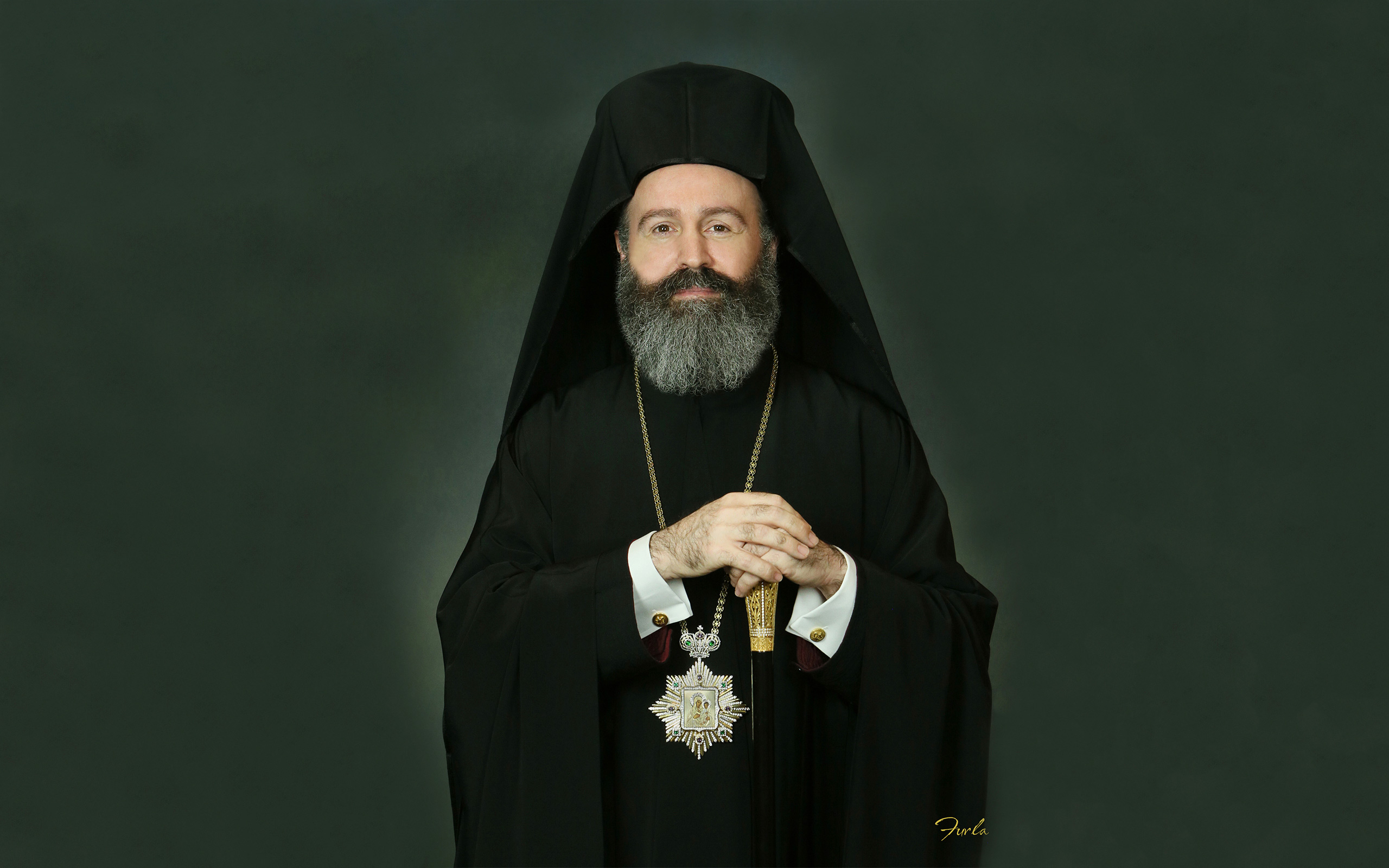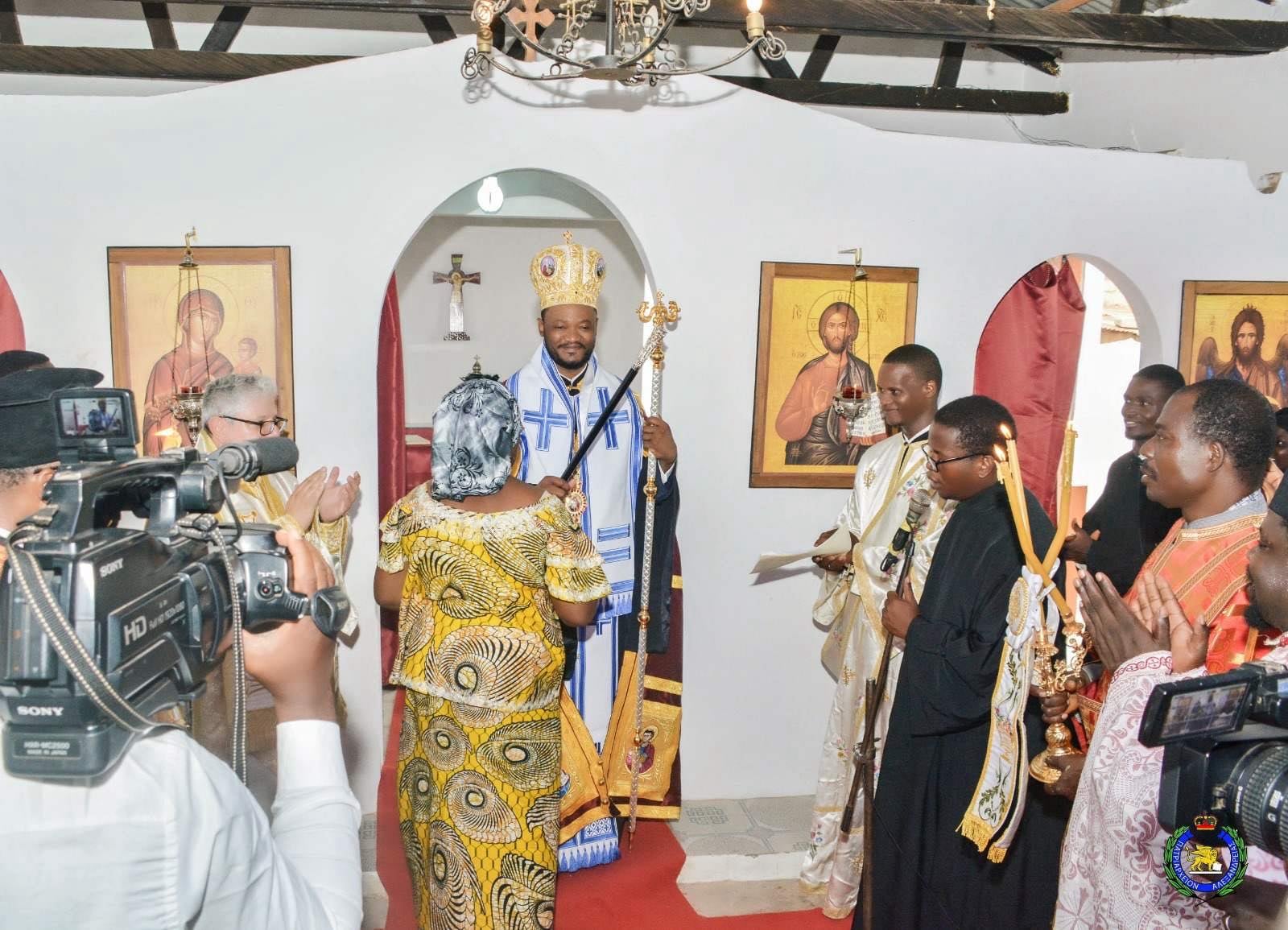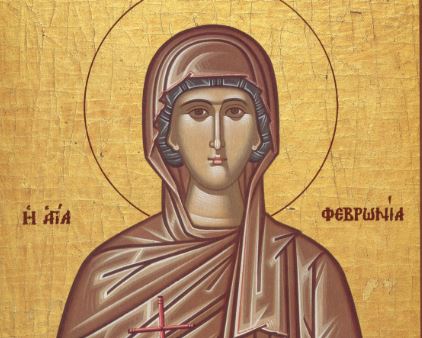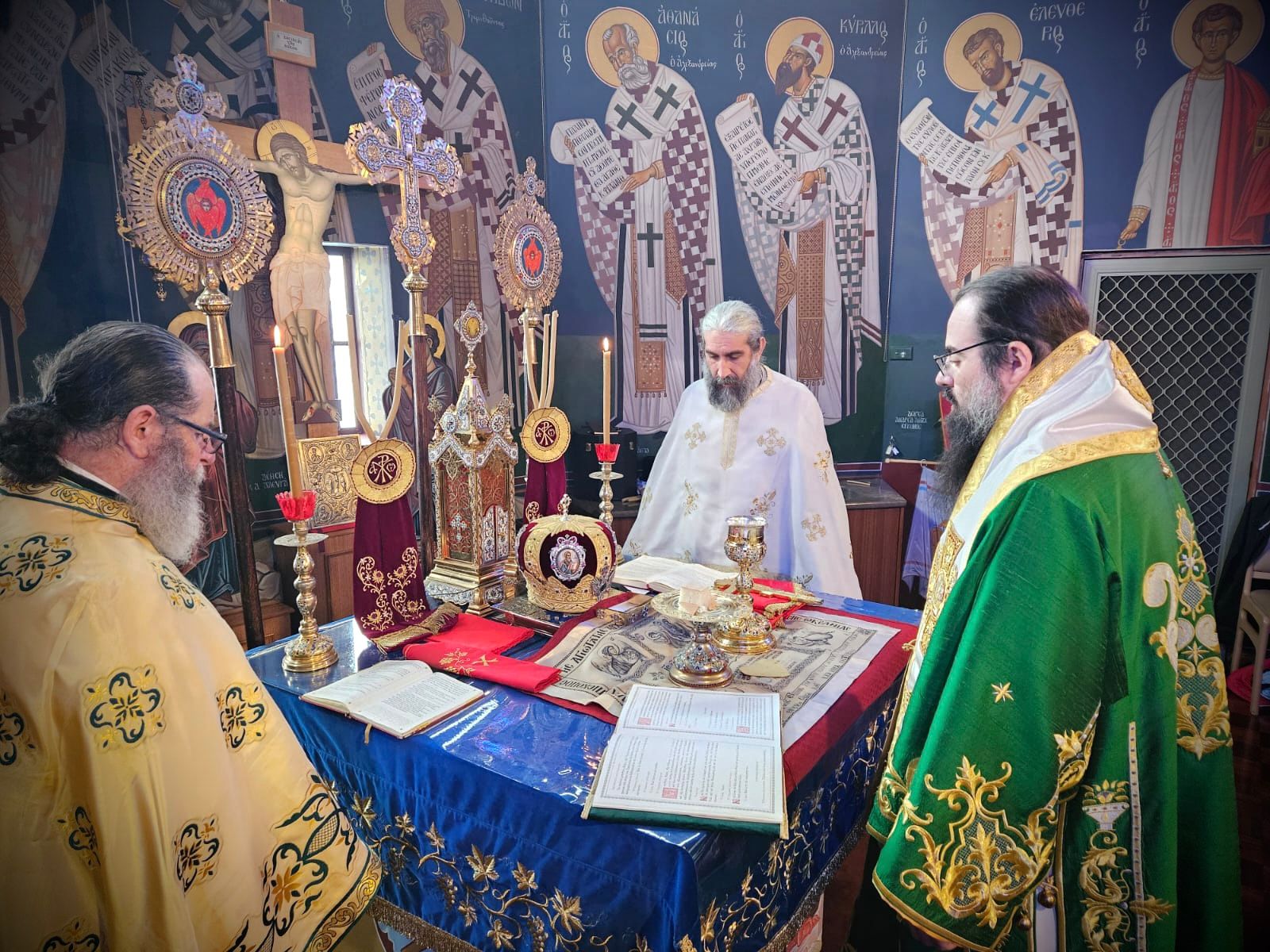Martyrs Manuel, Sabel, and Ismael, of Persia (17 June)


The Holy Martyrs Manuel, Sabel and Ismael, brothers by birth, were descended from an illustrious Persian family. Their father was a pagan, but their mother was a Christian, who baptized the children and raised them with a firm faith in Christ the Savior.
When they reached adulthood, the brothers entered military service. Representing the Persian King Alamundar, they were his emissaries in concluding a peace treaty with Emperor Julian the Apostate (361-363). Julian received them with due honor and showed them his favor. However, when the brothers refused to take part in a pagan sacrifice, Julian became angry. He annulled the treaty and incarcerated the ambassadors of a foreign country like common criminals.
At the interrogation he told them that if they scorned the “gods” he worshipped, it would be impossible to reach any peace or accord between the two sides. The holy brothers answered that they were sent as emissaries of their King on matters of state, and not to argue about “gods.” Seeing their firmness of faith, the Emperor ordered the brothers to be tortured.
The hands and feet of the Holy Martyrs were nailed to trees. Later, they drove iron spikes into their heads, and wedged sharp splinters under their fingernails and toenails. During their torments, the Saints glorified God and prayed as though they did not feel the tortures.
Finally, the Holy Martyrs were beheaded, and Julian ordered their bodies to be burned. Suddenly, there was an earthquake. The ground opened up and the bodies of the Saints disappeared into the abyss. After Christians prayed fervently for two days, the earth gave up the bodies of the holy brothers, from which a sweet fragrance issued forth. Many of the pagans who had witnessed the miracle, came to believe in Christ and were baptized. This was in the year 362.
Christians reverently buried the bodies of the Holy Martyrs Manuel, Sabel and Ismael. Since that time the relics of the Holy Passion-Bearers have been glorified with miracles.
The following year, when he heard about the murder of his emissaries, and that Julian was marching against him with a vast army, the Persian King Alamundar mustered his army and started for the border of his domain. The Persians vanquished the Greeks in a great battle.
At this time, Saint Basil the Great (January 1) was praying before an icon of the Most Holy Theotokos, upon which Saint Merkourios (November 24)1 was depicted as a soldier holding a spear. He asked God not to allow Emperor Julian to return from his war against the Persians, and resume his oppression of Christians. Suddenly, the image of the Holy Great Martyr Merkourios on the icon, next to the image of the Most Holy Theotokos, became invisible. Later, the image of Saint Merkourios reappeared with a bloodied spear.
As it happened, Julian was wounded by the spear of an unknown soldier, who disappeared. As he lay dying, the mortally wounded Julian cried out, “Thou hast conquered, O Galilean!”
The solemn commemoration of these saints is very ancient. In 395, thirty-three years after their death, Emperor Theodosios the Great built a church in honor of the Holy Martyrs at Constantinople, and Hieromonk Germanos (May 12), who later became the Patriarch of Constantinople, composed a Canon in honor of the holy brothers.
1 November 25 in Greek usage.
The holy Martyrs Manuel, Sabel, and Ishmael, Persians by race and brethren according to the flesh, were sent by the Persian King as ambassadors to Julian the Apostate to negotiate a peace treaty. While with him at a place near Chalcedon, they refused to join him in offering sacrifice to his idols. Scorning the immunity universally accorded ambassadors, he had them slain in the year 362. This was a cause of the war with Persia in which Julian perished miserably the following year.
Manuel, Sabel and Ishmael were brothers born in Persia, of a pagan father and a Christian mother. They were educated in the spirit of Christianity and were baptized. As Christians, they were high-ranking officials at the court of King Alamundar. They were sent to Emperor Julian the Apostate to conduct negotiations and to confirm peace between the Persian and Graeco-Roman empires. The apostate emperor arranged a blasphemous celebration in honor of the idols in Chalcedon. At this celebration the emperor, with his noblemen, offered sacrifices to the idols.
The Persian emissaries absented themselves from this celebration. The emperor summoned them and ordered that they also take part in the celebration and offer sacrifices to the gods. They declared that they were foreign citizens and that they came as emissaries of the Persian king for the sake of establishing peace between the two empires, and not for anything else; that they were Christians and that they consider it unworthy to worship dead idols and to offer them sacrifices. The emperor became enraged and cast them into prison. The next day he brought them out and again began to dispute with them about the Faith, but the holy brothers were adamant and unwavering.
They were then bound naked to trees, beaten, and scraped with an iron brush. During their torture they prayed to God with thanksgiving for their tortures: “O sweet Jesus, these torments are sweet for the sake of Your love!” An angel of God appeared to them, comforted them, and removed every pain from them. Contrary to all rules of international relations, the wicked Emperor Julian finally pronounced judgment that the three brothers be beheaded. When they were beheaded there was a great earthquake. The earth split and received the bodies of the holy martyrs so that the pagans could not burn their bodies, as directed by the emperor.
The earth later gave up the bodies of these martyrs so that Christians could find them and honorably bury them. Over their relics there occurred many miracles, seeing which, many pagans converted to the Christian Faith. When the Persian king heard how Julian had inhumanely given his emissaries over to death, he prepared an army against him. Convinced of victory, Julian set out against the Persian Empire, but he was overwhelmingly defeated and perished in shame, to the joy and laughter of the entire world.
Apolytikion of Martyrs Manuel, Sabel & Ismael
Fourth Tone
Thy Martyrs, O Lord, in their courageous contest for Thee received as the prize the crowns of incorruption and life from Thee, our immortal God. For since they possessed Thy strength, they cast down the tyrants and wholly destroyed the demons’ strengthless presumption. O Christ God, by their prayers, save our souls, since Thou art merciful.
Kontakion of Martyrs Manuel, Sabel & Ismael
Second Tone
Pierced through in your hearts with faith in Christ, O blessed ones, ye drank of His cup with faith, and ye hurled to the ground all the impudence of the Persians and their vaunting idolatry; and ye intercede for us all, ye equal in number to the Trinity.
Source: oca.org / goarch.org / westserbdio.org




